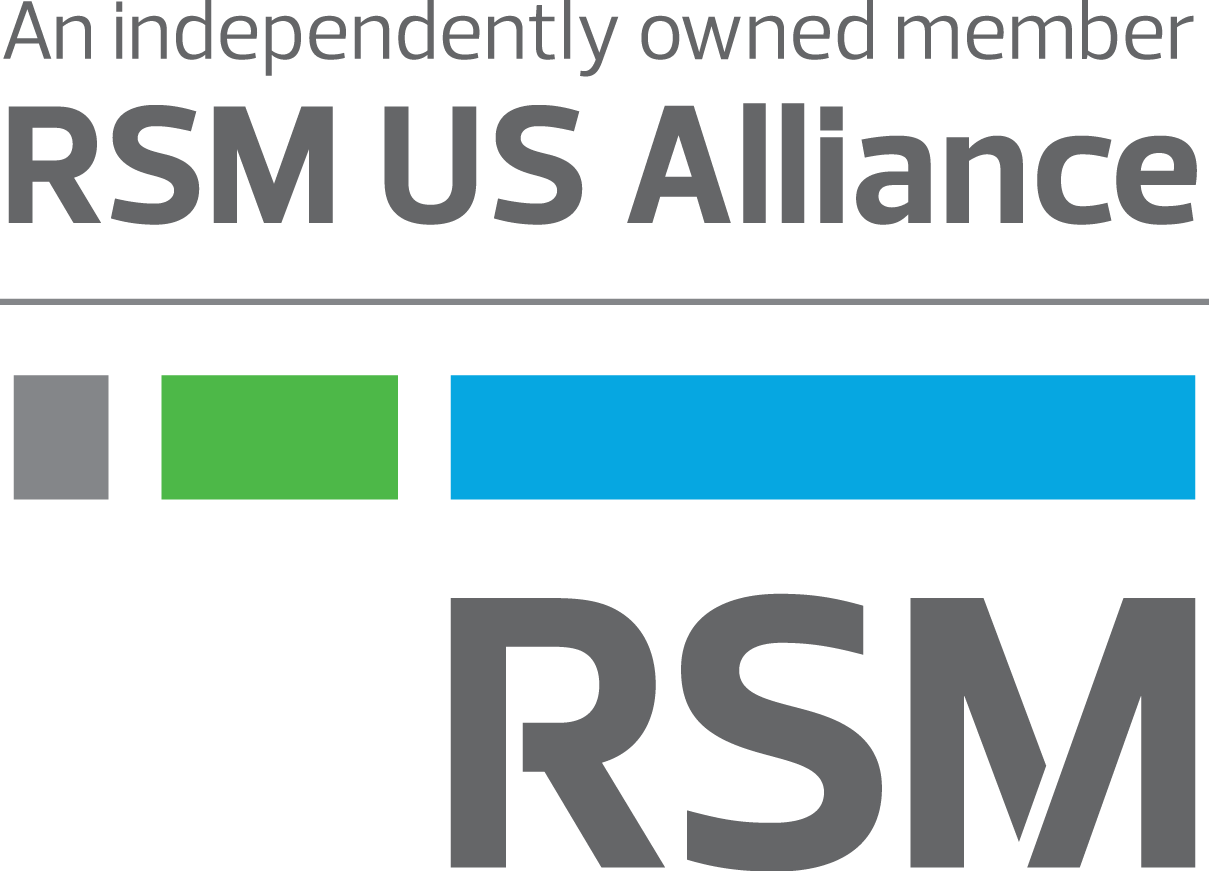
Early-stage tech: Focusing on core functions while prepping for growth
ARTICLE | June 02, 2023
Authored by RSM US LLP
Whether you’re starting your company with little more than determination and duct tape or you’ve reached the Series A or Series B funding rounds, the early stages of a technology company are challenging. You have a lot to do and to prepare for as you hopefully continue to grow—but limited staff and funds to get it all done.
“I see a lot of tech companies with very complex structures, but oftentimes they want to operate in a very simple manner. They need good advice on processes, systems and staffing that can help them bridge that gap between simplifying things and being able to meet the complexities of tax and audit requirements, for example.”
Lauren Lear, Director, RSM US LLP
Key considerations for tech company success in the early business stage
Cost-containment, efficiency and scalability are among your priorities at this stage. Specific considerations include the following:
Entity setup and valuation concerns
- Consider your entity setup carefully. Can you operate with a very simple business structure or do you need something more complex from the start?
- Consider international subsidiary and/or international structuring issues early on.
- Be aware of the different types of taxes you will be dealing with and the consolidation requirements you might eventually face.
- Don’t rely on free business valuation features that might be included with your equity management platform—utilize a valuation appraisal.
Office planning, staffing and back-office issues
- Try to avoid having any one person wear too many hats; hire staff with the specific skills you need now or consider outsourcing.
- Where possible, focus on hiring people with an early-stage mindset but also a broad range of experience and understanding of scalability.
- If you cannot afford or don’t require a full-time chief financial or chief revenue officer at this time, consider a fractional CFO/CRO to handle such matters as large customer contract negotiations, fundraising and leasing arrangements.
- Prepare for growth by considering the human infrastructure and functions that will be needed to scale, even though those people likely aren’t yet a part of your team.
- Build a tech stack that can be scaled and/or changed relatively easily as your staffing, accounting, payroll and human resources requirements grow more complex.
- Consider an accounting system that will accurately capture and report on revenues and costs so that you can answer investor questions about GAAP, revenue recognition, etc.
- Although an initial public offering or acquisition by a private equity firm or another tech company is not highly likely at this stage, do your best to have accounting systems that will allow you to readily address any due diligence inquiries.
- Consider where to locate the company. Do you need an office? Does your current location give you adequate access to talent and other resources you need? If not, where could you move? Do you want all your staff on site and do you want your team in every day? Should you consider a remote work model, a hybrid model or on-demand office space arrangements, such as a coworking space?
Financing and contracts
- Make sure your operational accounting functions can adequately handle collections as well as track product development spend.
- Are you familiar with the accounting implications of your current contract structure? Do you have a standard contract structure?
- At this stage you are more likely to meet the customer in the middle for the sake of closing the next deal. This may be on the front end or while projects are in flight. Consider standard operating procedures and written policies designed to capture and document all aspects of your customer arrangements.
- Form partnerships with third parties that understand your business and will be able to support you as you grow.
- Carefully vet third-party providers/vendors and be aware of the risks they could pose to your image or operations. Ensure that they are mindful of their compliance with regulations, their environmental, social and governance commitments, and other matters of concern to you, your investors and the public.
- Develop an equity story to help drive your Series A financing efforts and beyond.
Data security
- Implement controls to protect your intellectual property, especially in collaborative environments where research is shared.
- Ensure you have a good understanding of your infrastructure with security protocols for remote or decentralized work arrangements.
- Gain assurance that third-party IT providers have consistently strong data protection and cybersecurity capabilities.
- Promote the extension of security controls to the cloud.
“At this earliest stage, companies may lack consistency in contract terms with customers, accounting policy and key processes. Prioritize developing consistency in terms of processes and systems as early as possible.”
Elizabeth Hart, Partner, Financial Consulting, RSM US LLP
Additional considerations
It may be tempting to focus on the least expensive solutions for your needs, such as using QuickBooks for finance functions. In some cases, that can be a wise choice at this stage, but don’t focus so much on costs that you lose sight of functionality. Invest as early as is feasible in scalable tech stacks or platforms that will support your future growth. The irony is that many tech companies skimp on tech spending early on to keep costs down, but that often ends up costing them more—in terms of time and money—later down the line when having to make sudden changes to systems and processes.
Some of the specific areas you might want to consider at this stage include:
- Subscription, distribution, ownership and implementation systems for customers (software and/or hardware)
- Training and education services for customers
- Digital call center technology to aid in customer satisfaction and retention
This article was written by RSM US LLP and originally appeared on Jun 02, 2023.
2022 RSM US LLP. All rights reserved.
https://rsmus.com/insights/industries/technology-companies/early-stage-tech.html
RSM US Alliance provides its members with access to resources of RSM US LLP. RSM US Alliance member firms are separate and independent businesses and legal entities that are responsible for their own acts and omissions, and each are separate and independent from RSM US LLP. RSM US LLP is the U.S. member firm of RSM International, a global network of independent audit, tax, and consulting firms. Members of RSM US Alliance have access to RSM International resources through RSM US LLP but are not member firms of RSM International. Visit rsmus.com/aboutus for more information regarding RSM US LLP and RSM International. The RSM(tm) brandmark is used under license by RSM US LLP. RSM US Alliance products and services are proprietary to RSM US LLP.

VPTAX is a proud member of RSM US Alliance, a premier affiliation of independent accounting and consulting firms in the United States. RSM US Alliance provides our firm with access to resources of RSM US LLP, the leading provider of audit, tax and consulting services focused on the middle market. RSM US LLP is a licensed CPA firm and the U.S. member of RSM International, a global network of independent audit, tax and consulting firms with more than 43,000 people in over 120 countries.
Our membership in RSM US Alliance has elevated our capabilities in the marketplace, helping to differentiate our firm from the competition while allowing us to maintain our independence and entrepreneurial culture. We have access to a valuable peer network of like-sized firms as well as a broad range of tools, expertise, and technical resources.
For more information on how the VPTAX can assist you, please call us at (408) 278-8370.